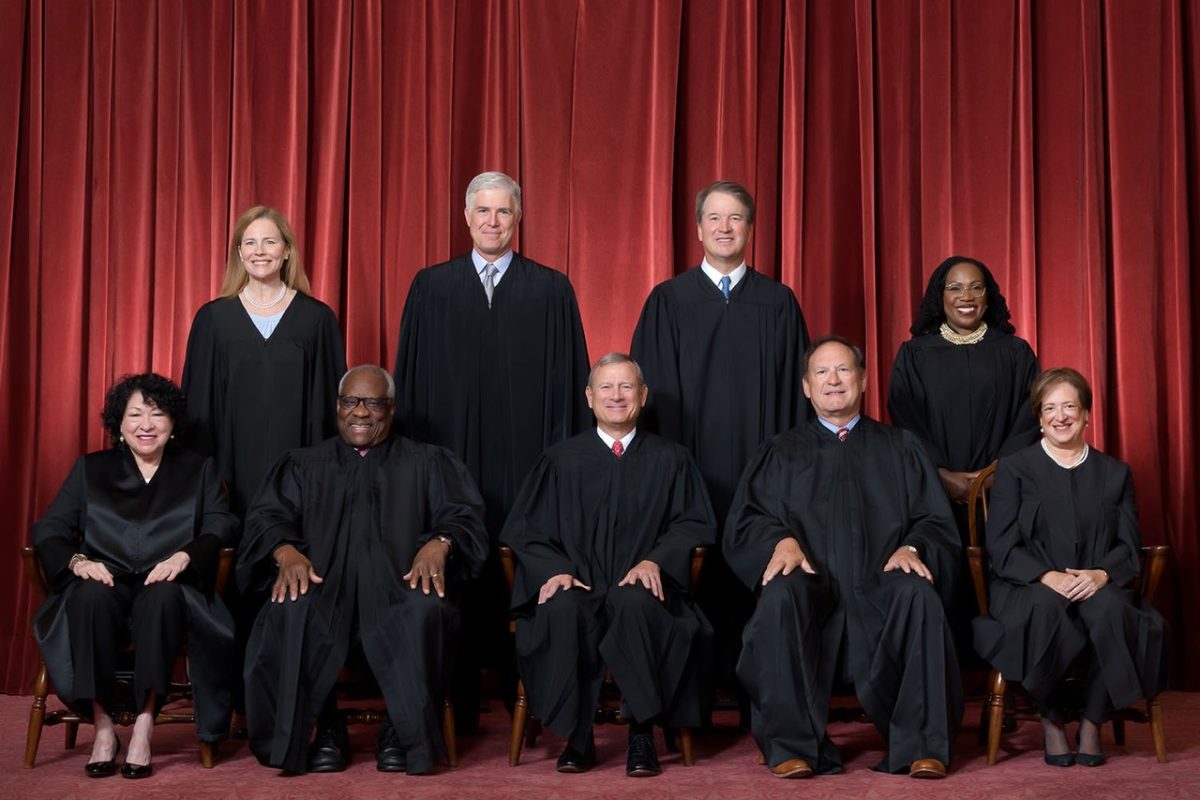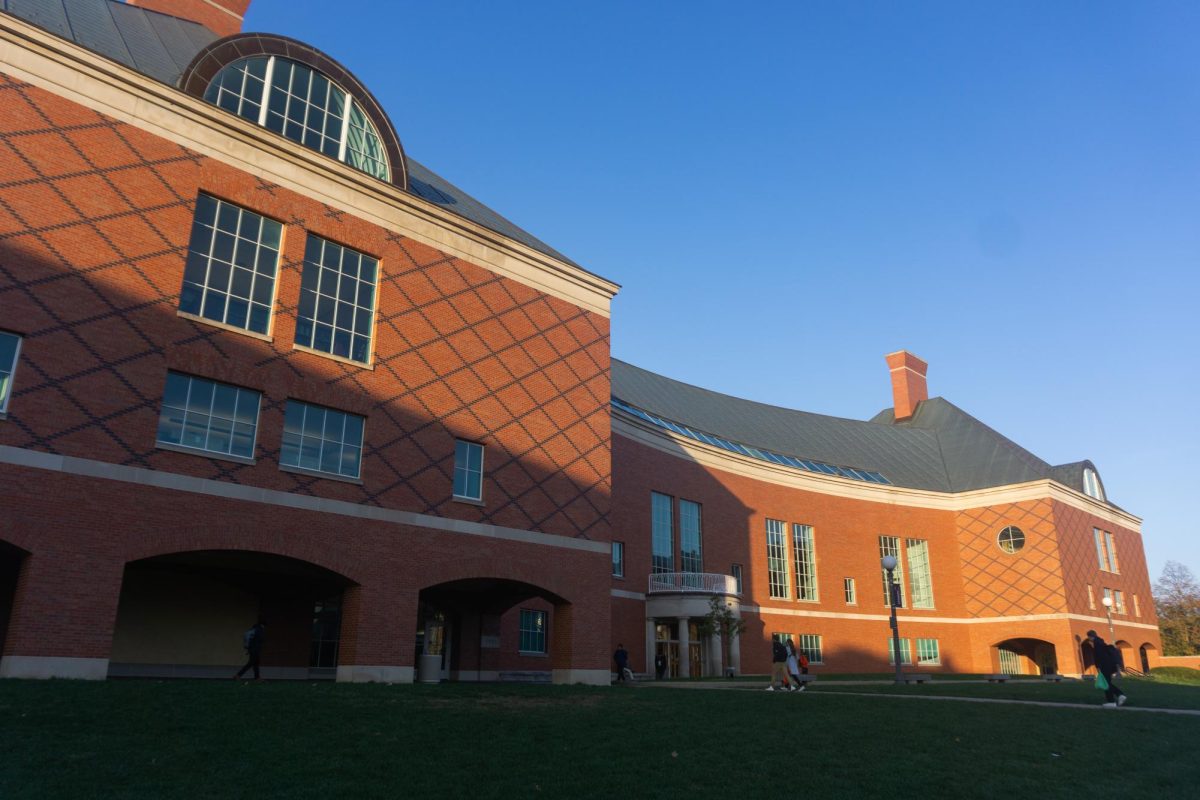Former United States Senator Joe Manchin (I-W.Va.) and Senator Peter Welch (D-Vt.) recently proposed an amendment limiting U.S. Supreme Court Justices to staggered 18-year terms. The amendment was introduced on Dec. 5, 2024, and calls for appointing a new justice every two years, with judges retiring once their term concludes.
“Our amendment maintains that there shall never be more than nine Justices and would gradually create regular vacancies on the Court, allowing the President to appoint a new Justice every two years with the advice and consent of the United States Senate,” Manchin said.
Currently, Supreme Court Justices can serve as long as they choose under the Good Behavior Clause, which allows removal only through impeachment by the House of Representatives and conviction by the Senate for a high crime or misdemeanor.
The Framers of the Constitution implemented lifetime appointments to allow the court to rule impartially without fear of losing power over unpopular decisions and shifting public opinion. In 1778, Alexander Hamilton wrote that periodical appointments, or terms, would not allow the court to rule with judicial independence.
In a press release, Manchin cited growing public distrust of the court as partial motivation for authoring the amendment.
Get The Daily Illini in your inbox!
“The current lifetime appointment structure is broken and fuels polarizing confirmation battles and political posturing that has eroded public confidence in the highest court in our land,” Manchin wrote.
Public opinion of the judicial branch has fallen in recent years. A January poll showed that 50.3% of Americans disapprove of the Supreme Court, 40% expressed approval and the rest were undecided.
“No other major democracy in the world gives lifetime seats to judges who sit on their highest court,” Welch wrote in a social media post. “It leads to divisive confirmation processes and reduced trust from the public.”
One recent controversy involved Justice Clarence Thomas, the longest-serving member of the current Supreme Court, who faced criticism for accepting luxury trips and gifts from billionaire and Republican mega-donor Harlan Crow.
Talks of reform
About a month before proposing the resolution, Manchin announced he would not seek reelection after 15 years in office. He ran as an Independent for the first time in 2024 following a career as a Democrat.
Don Casler, University assistant professor in LAS, explained that while efforts have been made in recent years to reform the judicial branch, the likelihood of them resulting in change is slim.
“I think the first thing to consider is that the amendment, at least in its current form, has very little chance of actually being enacted,” Casler said. ”(Manchin and Welch) see this as trying to start a conversation about what the future of oversight at the Supreme Court should look like.”
A legislative effort was made in August 2021 by Congressman Ro Khanna (D-Ca.), who sponsored H.R.5140. The bill involved appointing a new Supreme Court justice every two years and 18-year terms. The legislation had 17 Democrat cosponsors but never received a vote.
“I have no doubt that (Manchin) believes it would be a good reform,” said Brian Gaines, Arrington Professor in State Politics for the University and professor in LAS. “There have also been law professors who’ve been proposing this for probably 30 years, maybe longer. It’s not a brand-new idea. Manchin hasn’t crafted something out of the blue.”
In July 2021, President Biden announced a plan to reform the judicial branch, which included implementing term limits and introducing conduct and ethics rules for the Supreme Court. It is unclear whether this press release directly influenced Manchin’s amendment.
“It is telling that Democrats want to change the system that has guided our nation since its founding simply because they disagree with some of the Court’s recent decisions,” said House Speaker Mike Johnson this July in a post.“This dangerous gambit of the Biden-Harris Administration is dead on arrival in the House.”
A 2024 survey by University of Pennsylvania analysts showed that 68% of people support the idea of judicial term limits. Gaines noted that opinions vary depending on the proposed length, with 18 or 12 years being the most commonly suggested.
“I don’t know whether a term limit is going to affect how any individual justice interprets the law,” Casler said. “It’s more likely that (we will) get different people or a different mix of justices on the court at a given time, which might better reflect the state of public opinion in America.”
Gaines anticipates that the debate over judicial reform, while growing, will not reach the point of tangible change for a long time, as the U.S. has only ratified 27 amendments in over 200 years as a nation.
“My guess is that this is not going to be an extremely prominent topic with at least two years ahead of unified Republican control,” Gaines said. “I don’t expect we’re going to have a lot of discussion about reforming the Supreme Court. If Democrats could win control of either chamber in the midterm, then maybe there will be more talk about this two years from now.”










